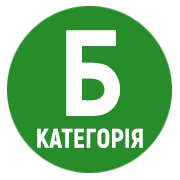Innovative and marketing prospects in conditions of rural territorial groups creation
Abstract
Today, one of the major reforms in Ukraine is the transition from a centralized to decentralized management model that becomes necessary to ensure socio-economic development, the approximation of local self-government to a person, the construction of a comfortable infrastructure and an effective system of territorial organization of power in the state. It is emphasized that for the successful implementation of decentralization reforms, modern marketing tools, including marketing services, regional and social, should be applied.
The purpose of the article is to find out some new aspects of marketing activity in the context of creating rural communities. The necessity of applying the concept of marketing as the basis of socio-economic development of rural territories is substantiated. For conducting administrative reform that will facilitate business it is necessary to carry out marketing researches, which will reveal the general tendencies of social and economic development. It is necessary to find out what is each object on the territory of the community from the point of view of economic and social activity. Joint programs of production, trade, banking, social, partnerships and special types of marketing should improve the conditions for the development of farming, small and family business, enable normal work of teachers, doctors and other so-called “state employees” and create the necessary infrastructure for comfortable living conditions for rural population.
References
2. On Voluntary Association of Territorial Communities (2015), Law of Ukraine No. 157-VIII.
3. About Tourism (2005), Law of Ukraine No. 324/95-VR, Parliamentary Publishing House.
4. Hordon Yan.Kh. (2001), Marketing of Partner Relations, Saint Petersburg, Piter.
5. Varnalii Z.S. (2007), State Regional Policy of Ukraine: Peculiarities and Strategic Priorities, Kyiv, NISD.
6. Mazur A.A. (2000), Modern Innovative Structures and Commercialization of Science, Kharkov, Poliart.
7. Ceballos-Lascurain H. (1996), Tourism, Ecotourism and Protected Areas, Cambridge : IUCN Publications Services Unit.
8. Honak I.M. (2015), “Quantitative and spatial dimension of tourism development in the region”, Socio-economic development of regions in the context of international integration, Vol. 15(4), pp. 81-87.
9. Rutynskyi M. and Zinko Yu.V. (2008), Green Tourism, Kyiv, Znannia.
10. Tielietov O.S. (2015), “Marketing approach to solving administrative reform problems in Ukraine”, in Illiashenko S.M. (Ed.)., Market-Oriented Management of Innovation Development, Kharkiv, TOV “Disa pluis”, pp. 81-88.
11. Tielietov O.S. (2016), “The economy of Ukraine in conditions of possible transition of social patterns of human development to a new quality”, Economic Bulletin of NTUU “KPI”, Vol. 13, pp. 21-27.
12. Tielietov O.S., Ivashova N.V. and Nahornyi Ye.I. (2013), Innovations in the Marketing of Industrial Enterprises, Sumy, Sum-DU.
13. Tielietov O.S. and Chikalova A.S. (2016), “Marketing and innovation perspectives of development of rural green tourism in the regions of Ukraine”, Mechanism of regulation of the economy, Vol. 2, pp. 106-117.
14. Strategy of economic development of Ukraine up to 2020: strategy of national modernization, available at: http://me.kmu.gov.ua.
15. Medlik S. Dictionary of Travel, Tourism and Hospitality, available at: www.goodreads.com/book/show/3118649-dictionary-of-travel-tourism-and-hospitality.








